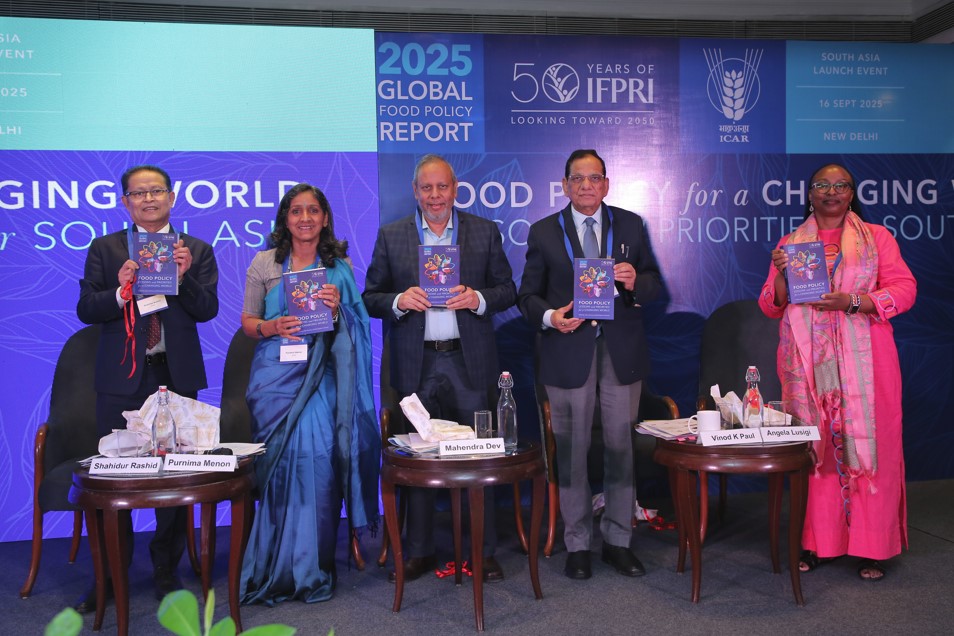News Flash
News Flash

DHAKA, Sept 17, 2025 (BSS) - Experts at a dialogue laid emphasis on strengthening food systems for sustainable development as a large share of the population in the South Asia remains dependent on agriculture and food-related services.
They made the remarks at a high-level regional policy dialogue on "Food Policy for a Changing World: Lessons and Priorities for South Asia", on Tuesday in New Delhi, India, said a press release here today.
The International Food Policy Research Institute (IFPRI), in partnership with the Indian Council of Agricultural Research (ICAR), convened the dialogue.
The dialogue brought together senior policymakers, researchers, and development partners to reflect on how South Asia can secure resilient, inclusive, and sustainable food systems amid mounting pressures of climate change, malnutrition, and demographic transitions.
The chief guest, Prof. S. Mahendra Dev, Chairman, Economic Advisory Council to the Prime Minister of India (EAC-PM), reminded participants that the food systems agenda cannot lose sight of traditional priorities.
"While we are focusing on newer challenges like food systems, environment, and nutrition, we should not forget that earlier priorities like agriculture growth linkages and rural investments remain critical. Governments and the private sector must work together to reshape food systems that deliver affordable, healthy, and diversified diets," he added.
Dr. Vinod K. Paul, Member, NITI Aayog, said, "If we truly want to break the intergenerational cycle of malnutrition, we must act before pregnancy. Preconception health and nutrition for women can reduce growth restriction by up to 25%, and when coupled with later interventions, can cut childhood stunting by nearly half."
Summing up the stakes for the region, Dr. Shahidur Rashid, Director, IFPRI-South Asia, noted: "This year's Global Food Policy Report is special - it not only marks IFPRI's 50-year journey, but also reflects on the future policy challenges that will shape food and agriculture in the decades ahead. For South Asia, the report highlights three stubborn challenges that demand urgent attention: climate change, persistent undernutrition, and the need for healthier, more diverse diets."
BSS/P